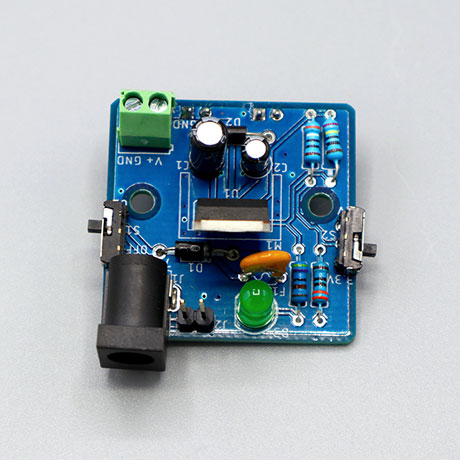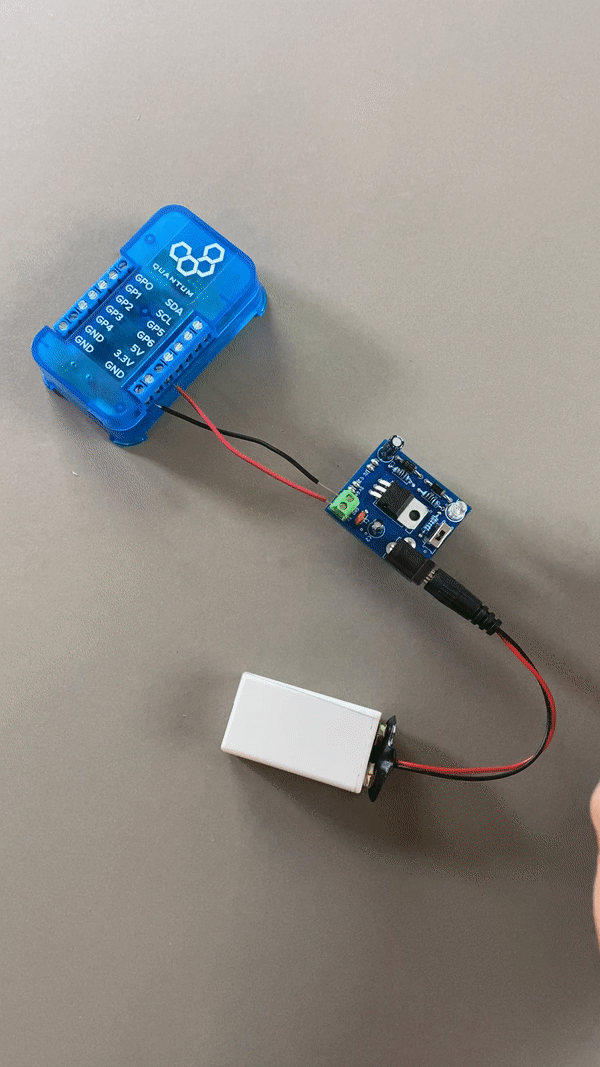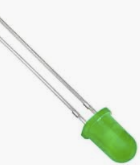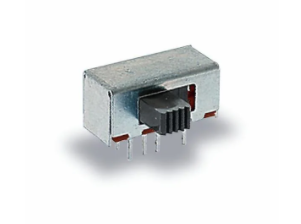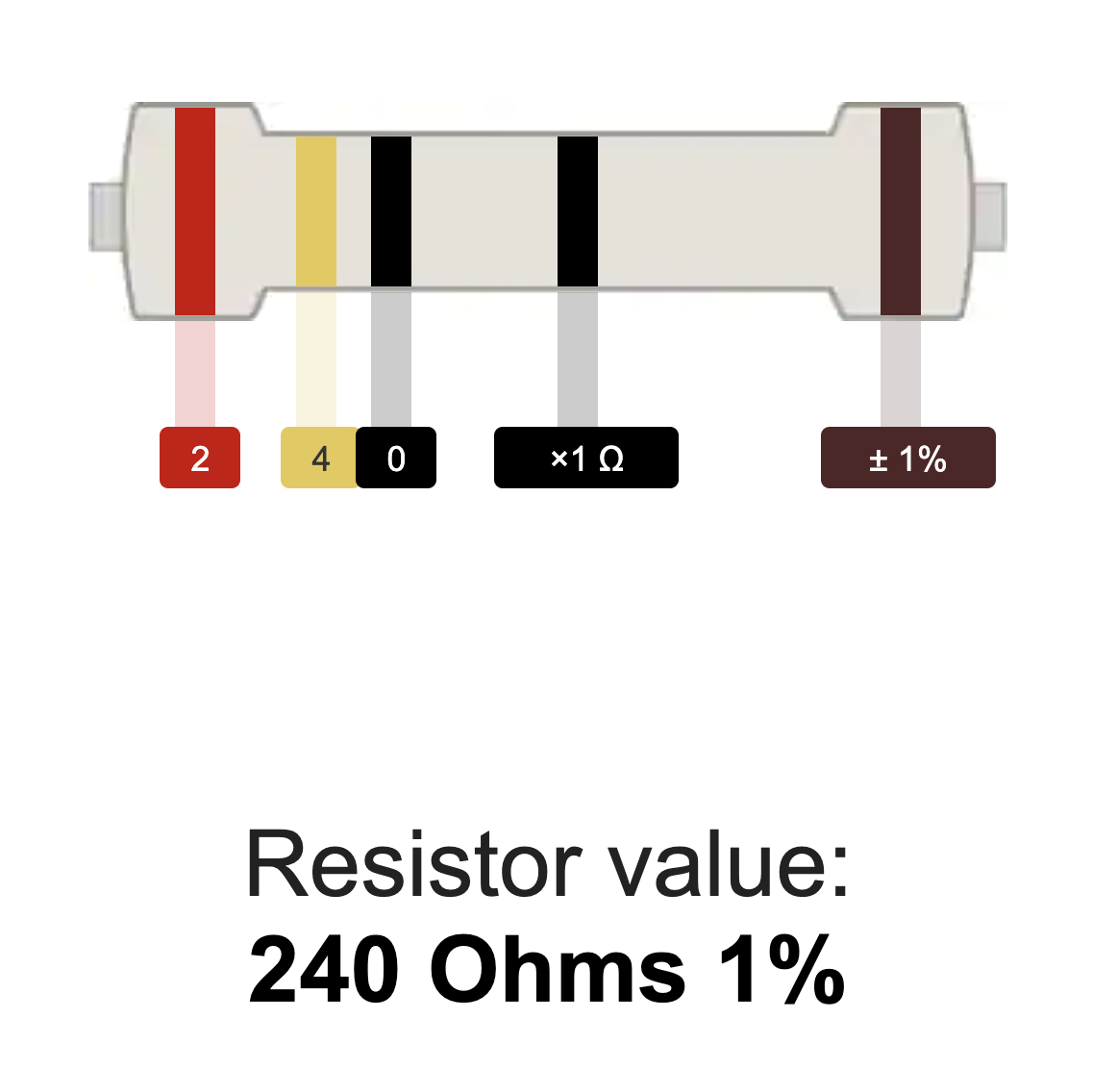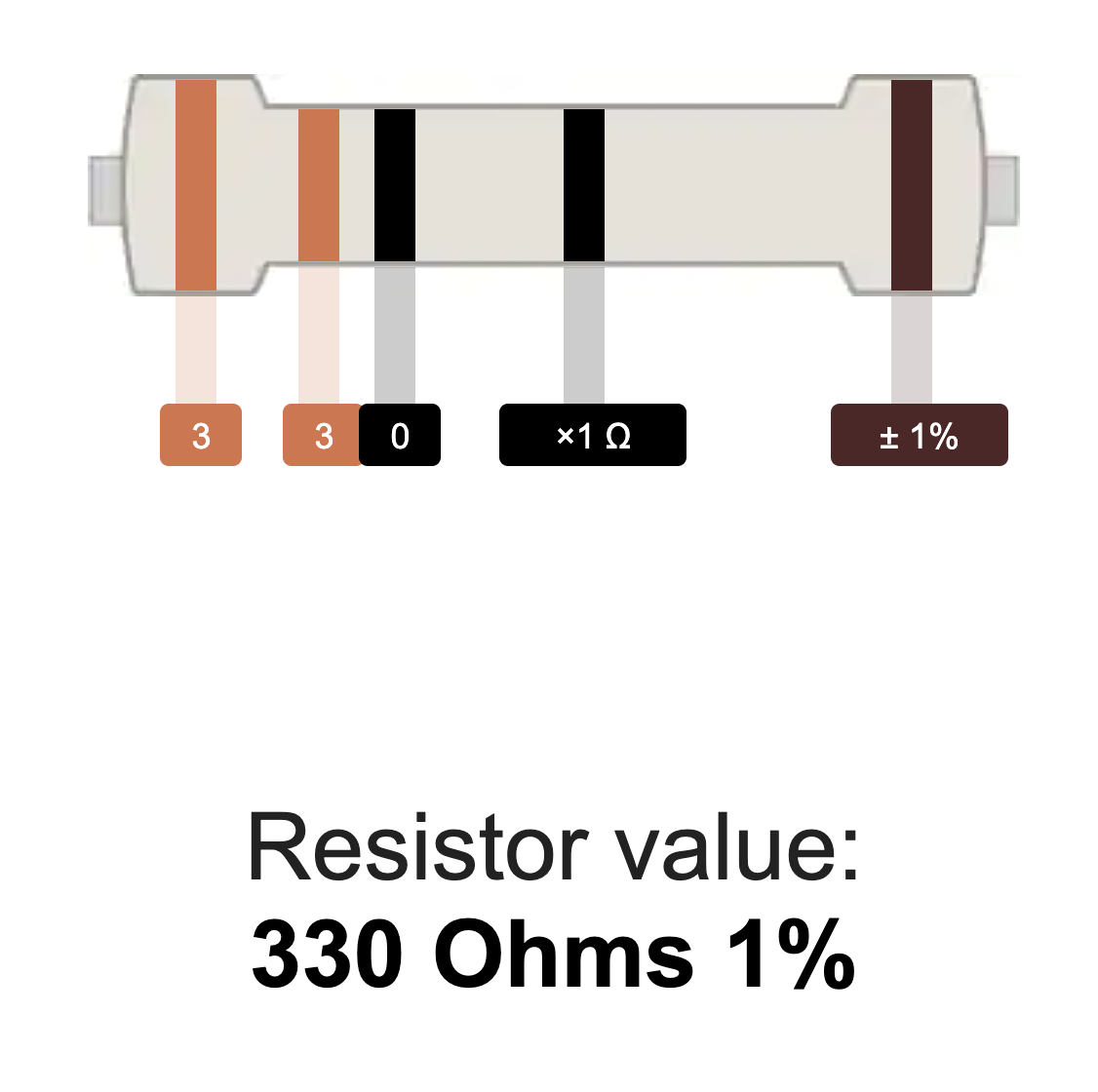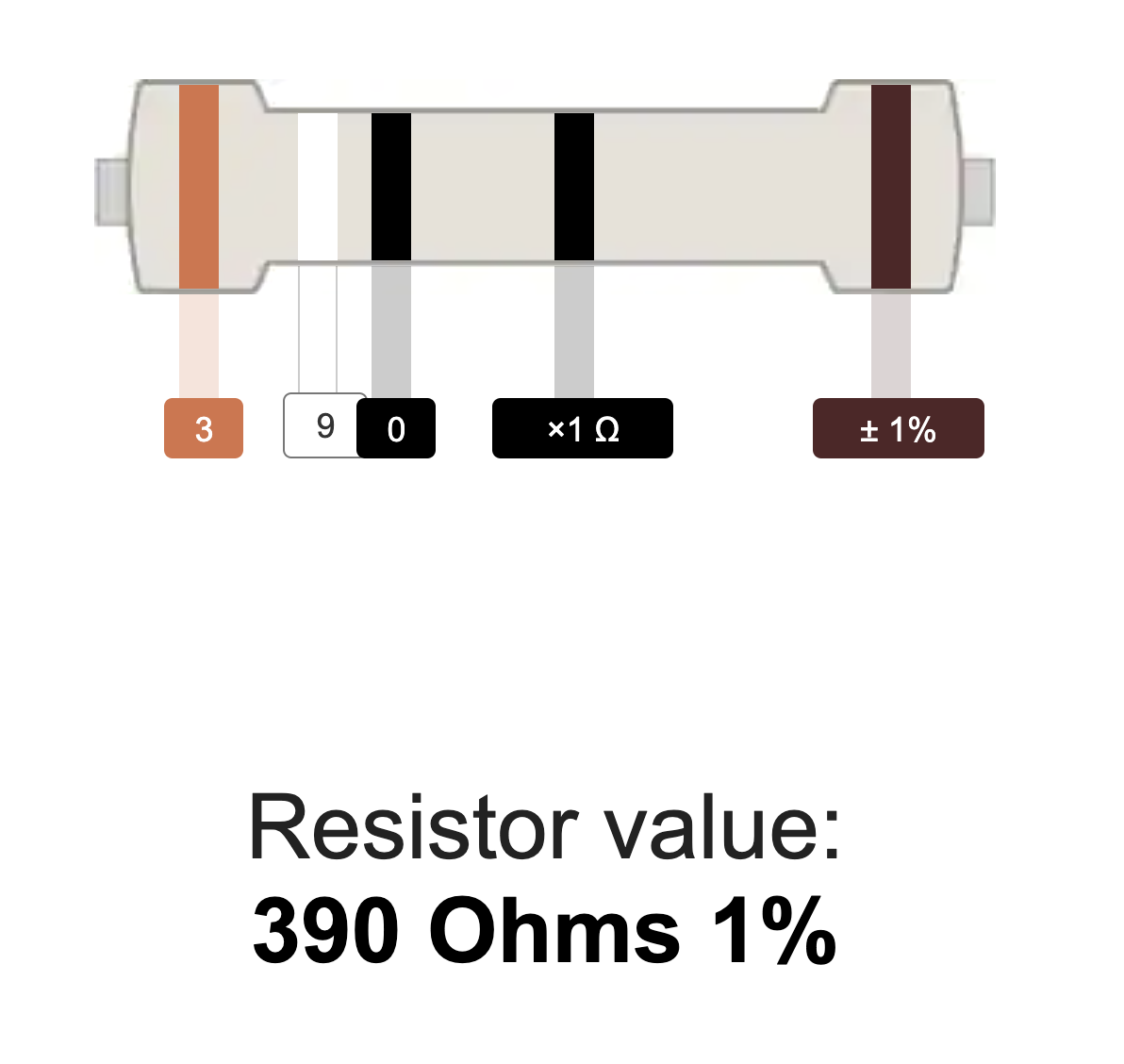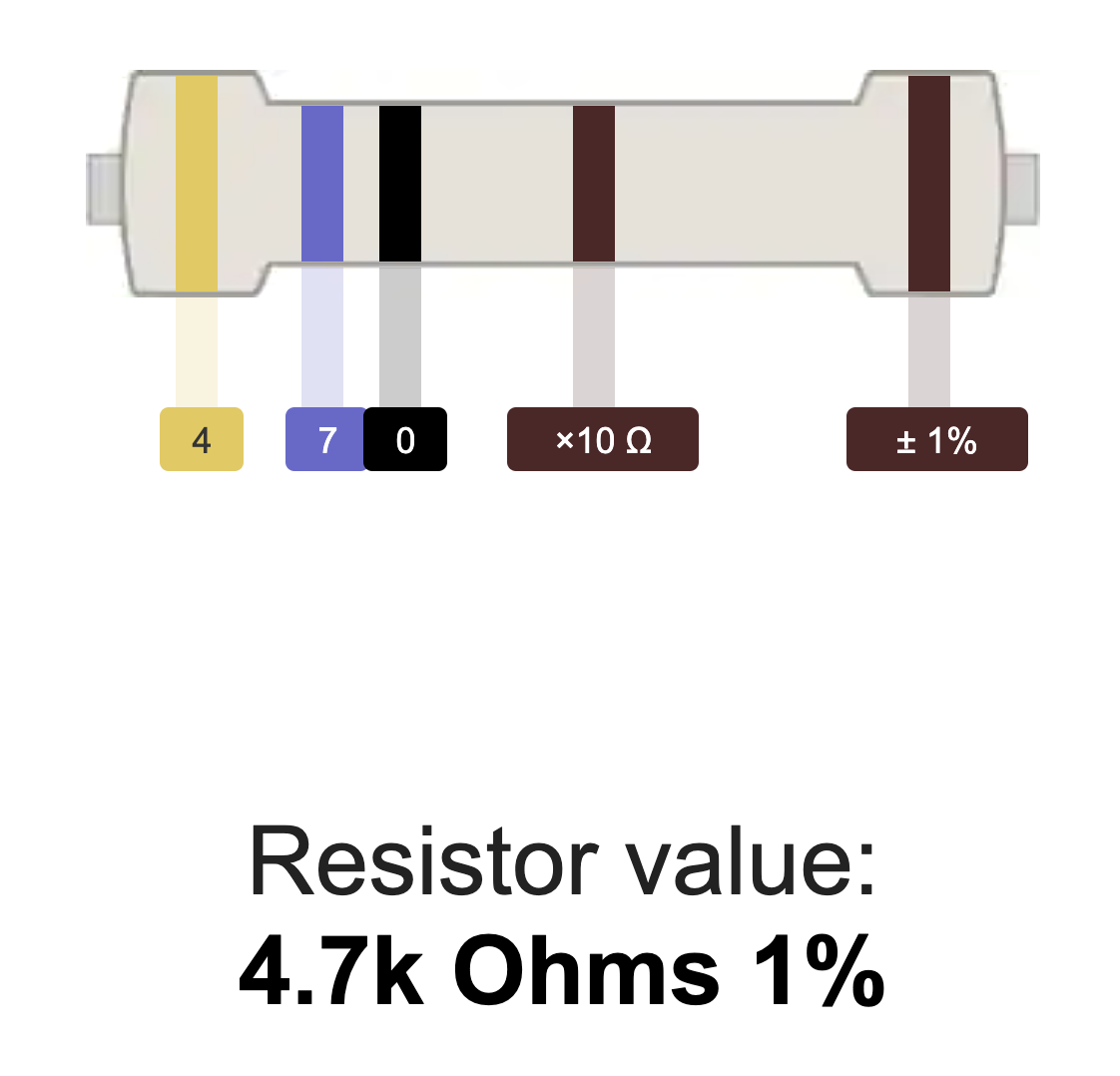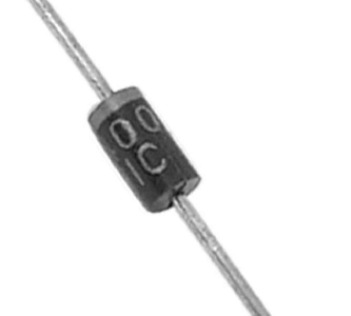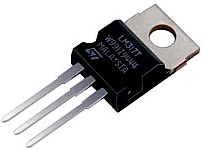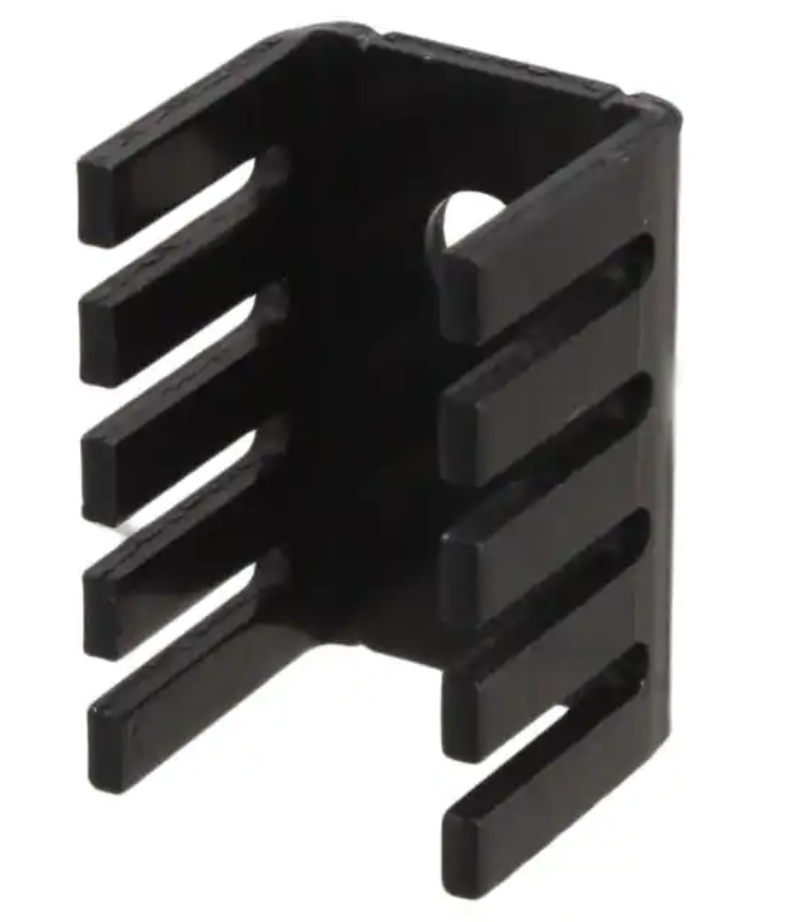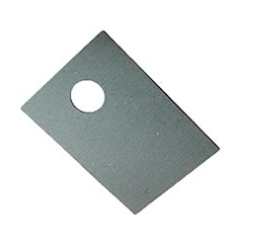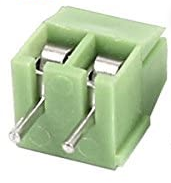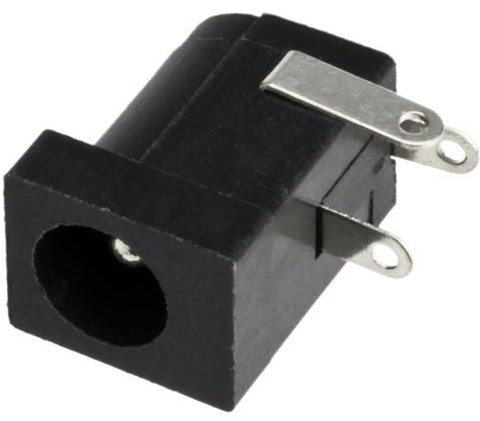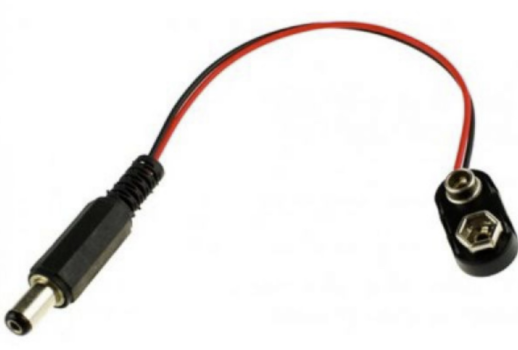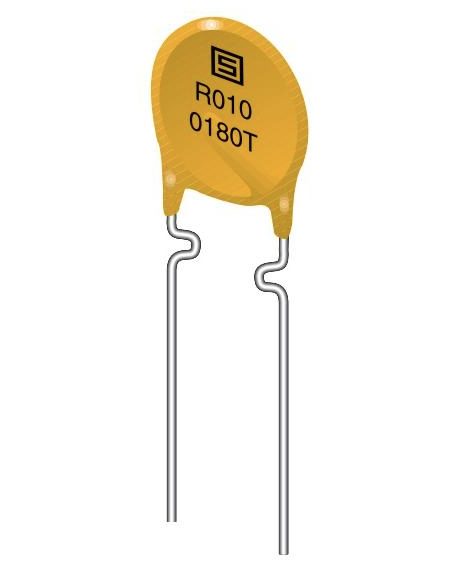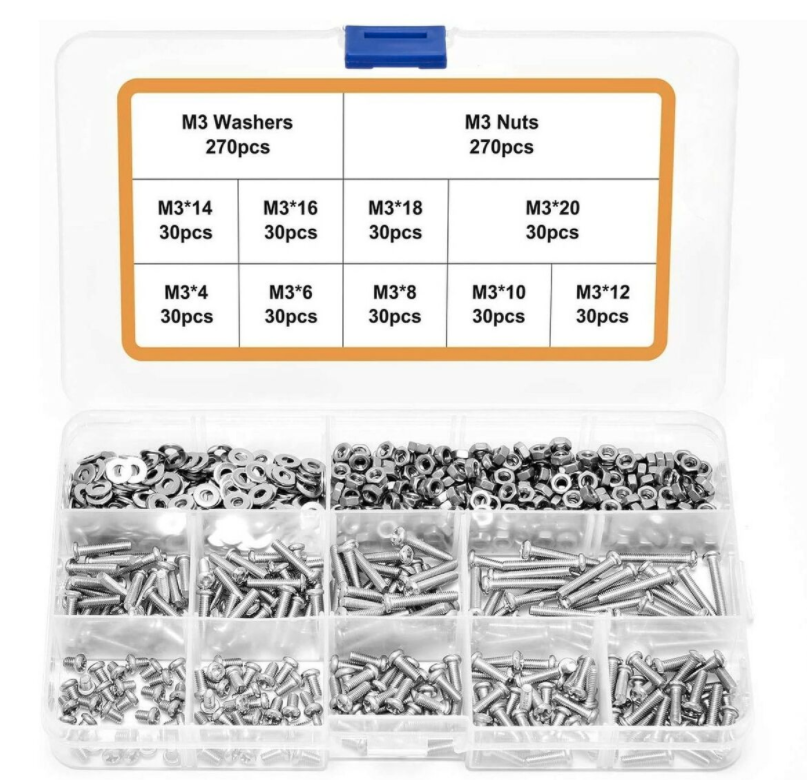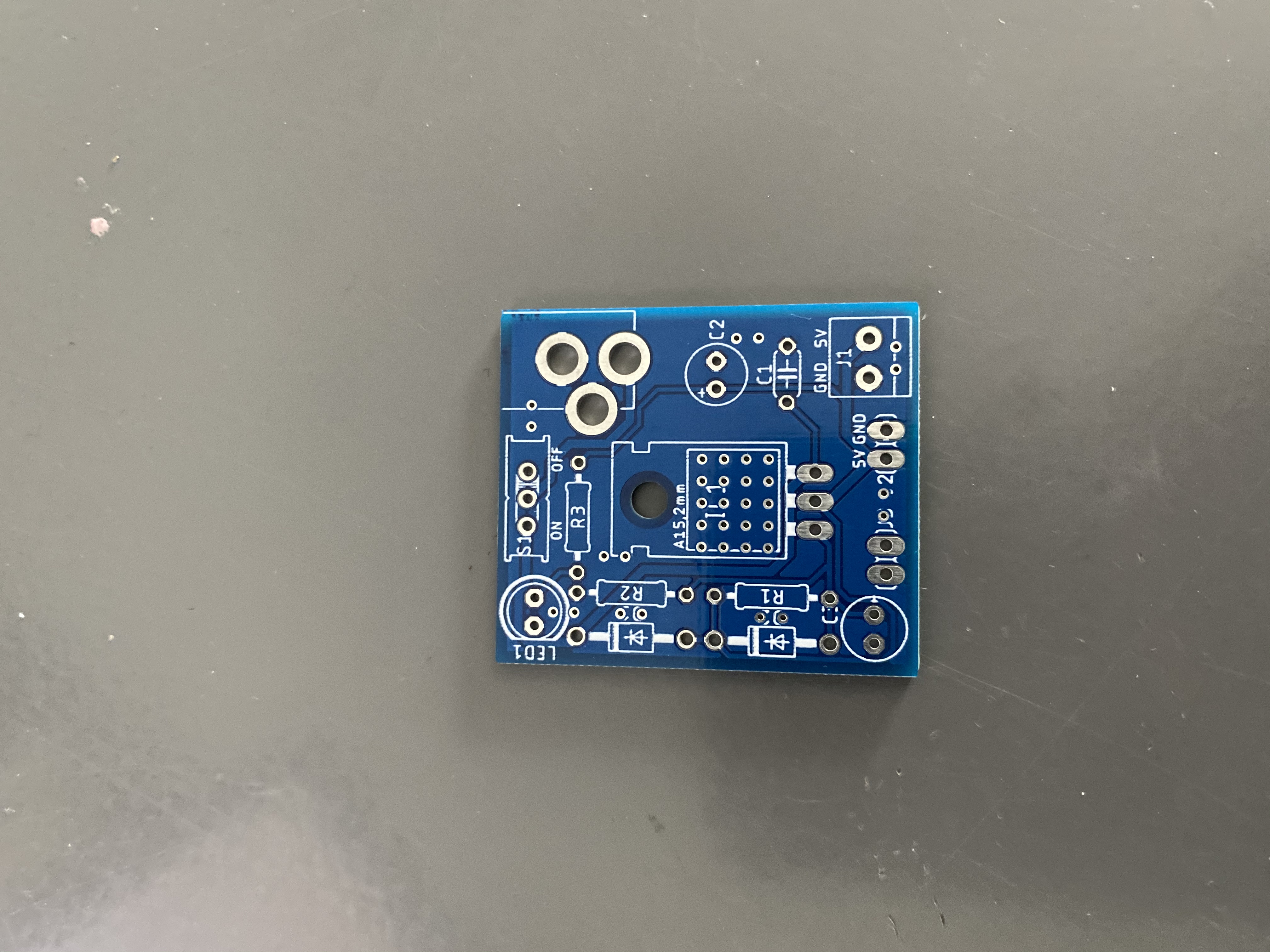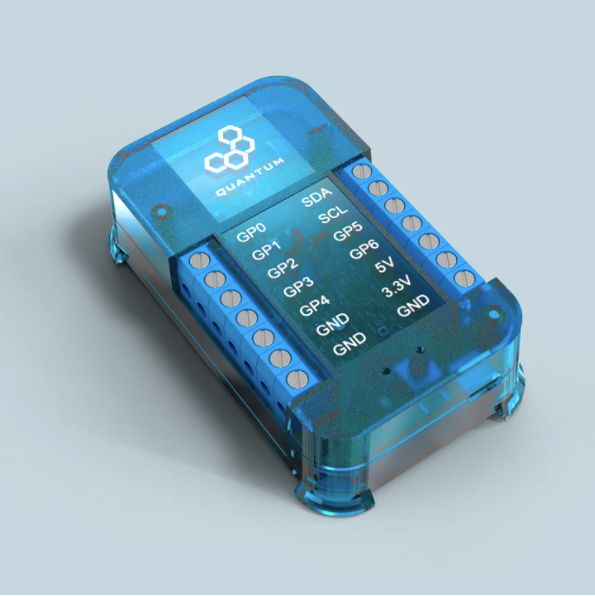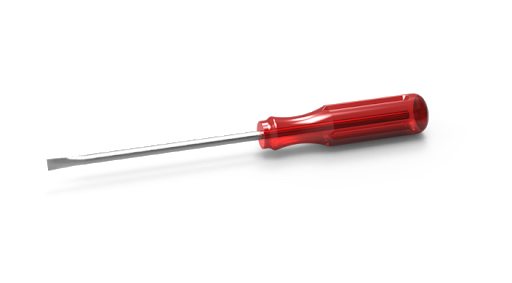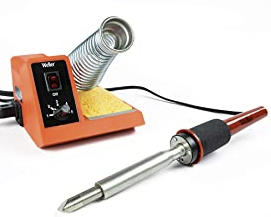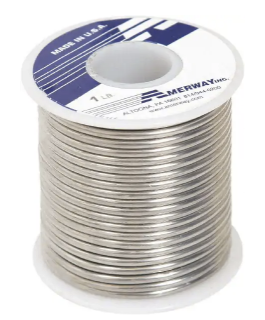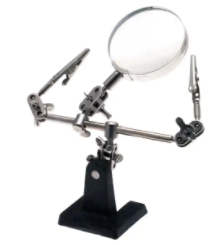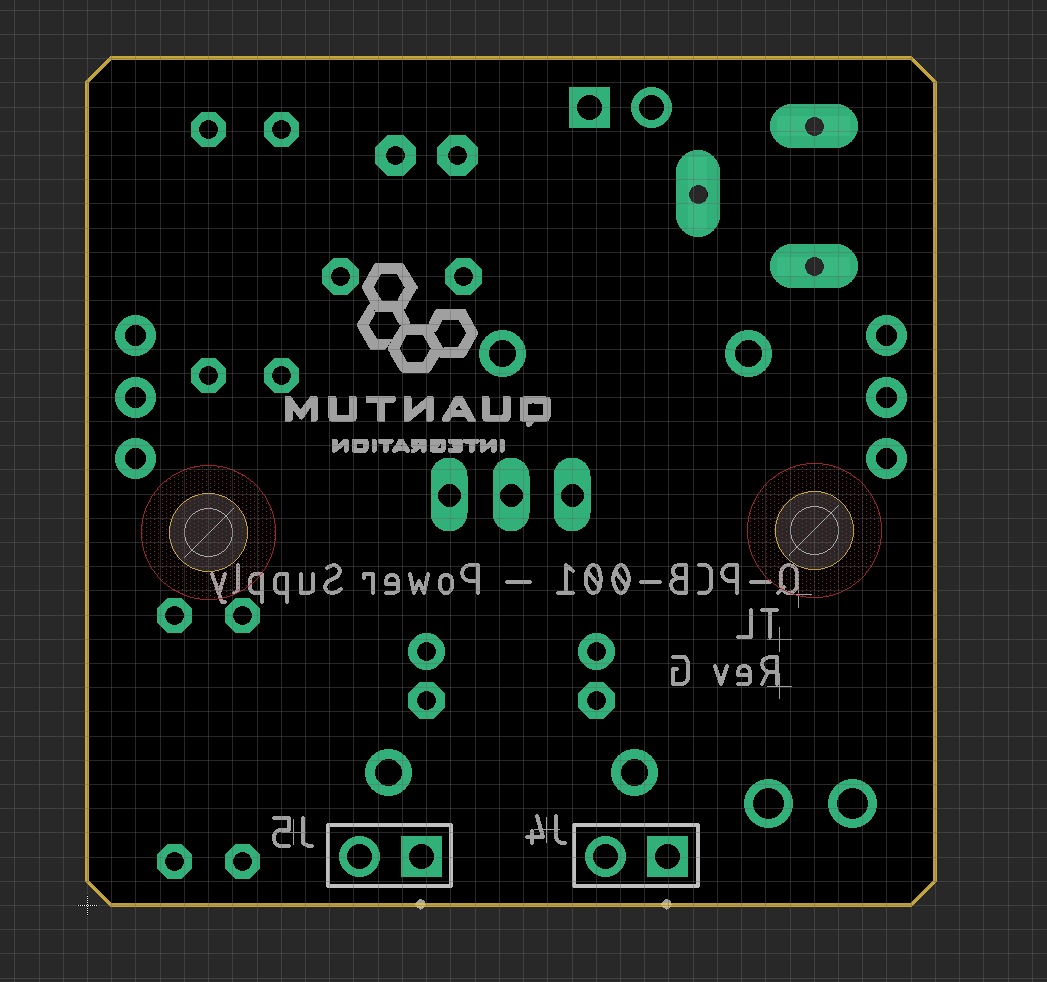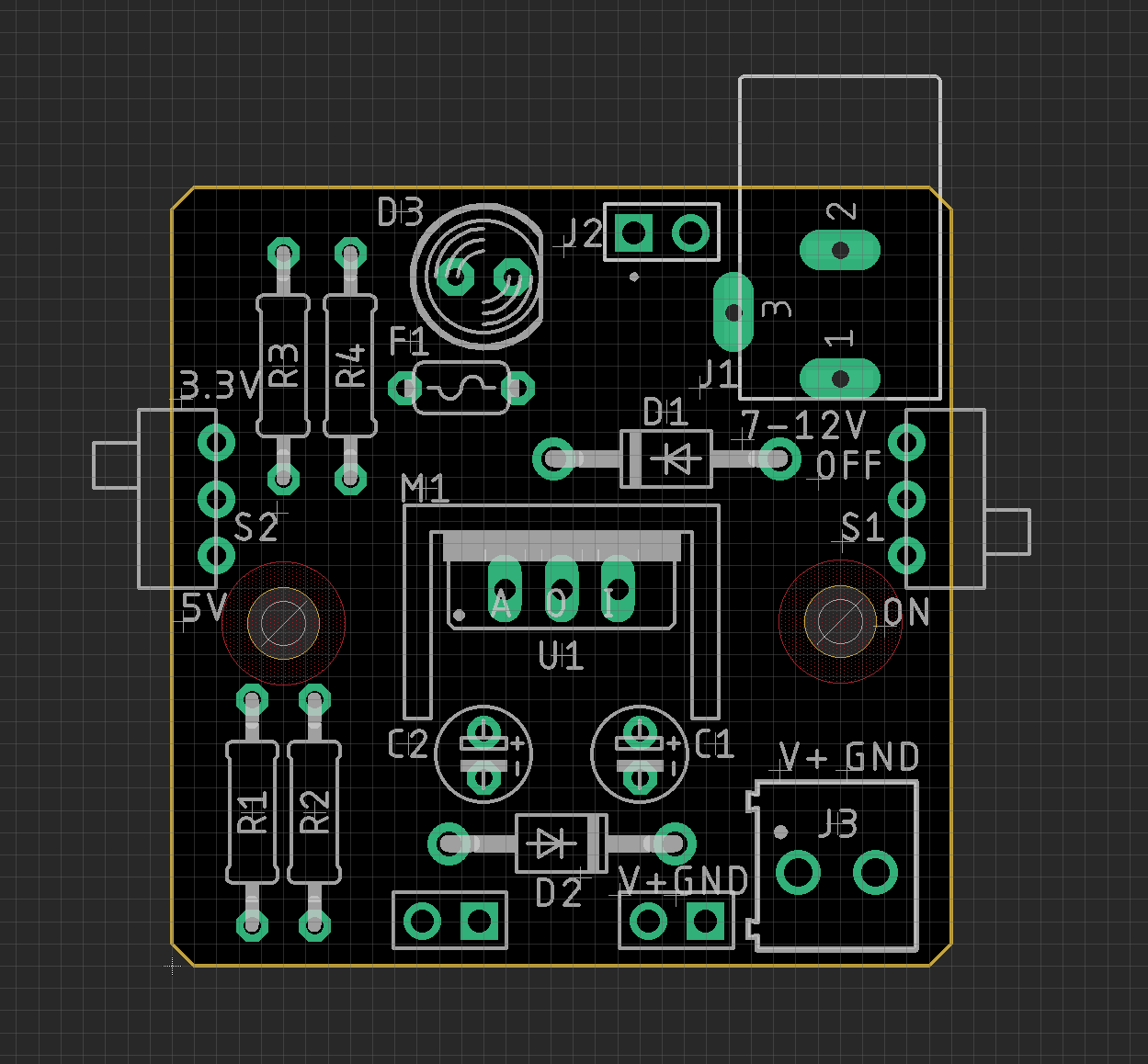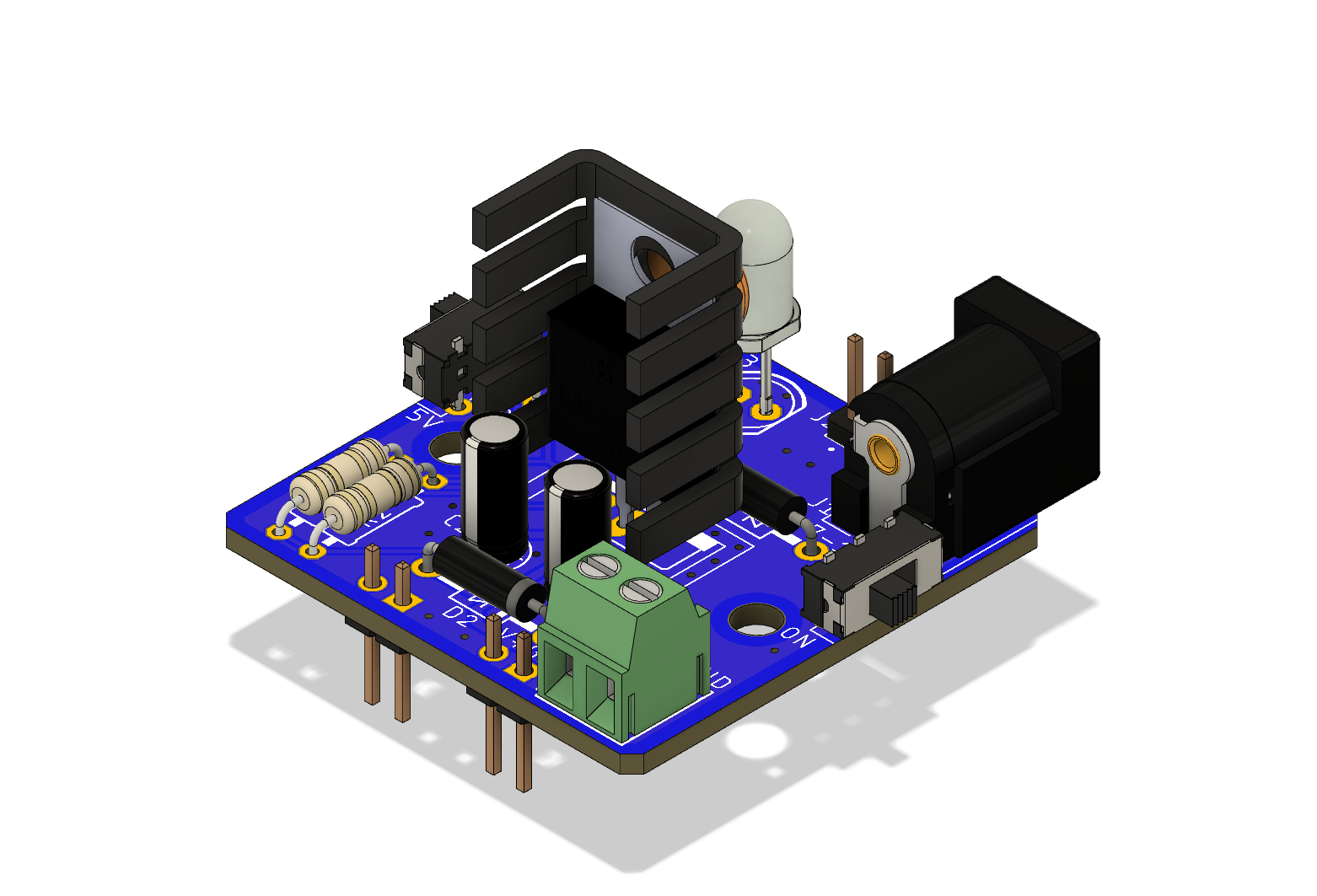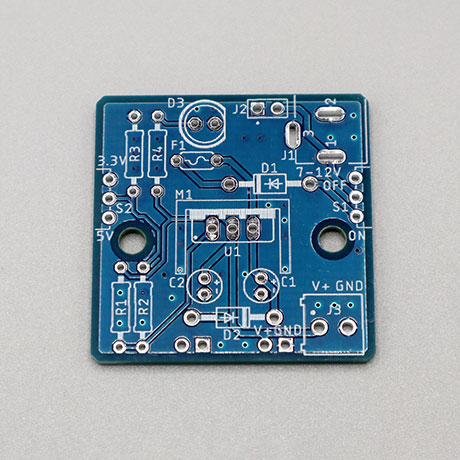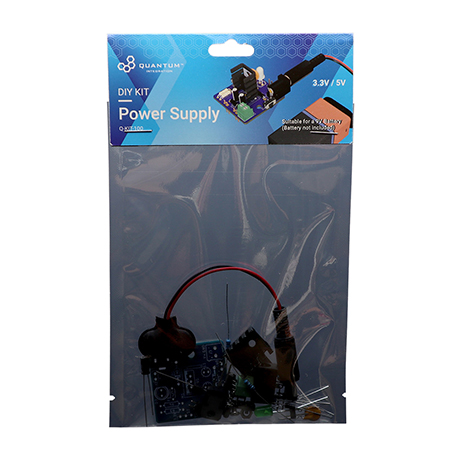| Table of Contents |
|---|
Overview
A Power Supply DIY Kit that can be used to power the Q-Client Builder Base or any of your other projects from a 9V battery. 5V and 3.3V as available as output voltages.
|
|
Required hardware
Components
The full DIY Kit can be purchased here
The components are part of the DIY Kit or can be sourced separately with help of the BOM:
| View file | ||
|---|---|---|
|
Picture | Name | Designator | Quantity |
|---|---|---|---|
| Radial LED (5mm) | D3 | 1 |
| Sliding Switch | S1, S2 | 2 |
240Ω Resistor | R1 | 1 | |
330Ω Resistor | R3 | 1 | |
390Ω Resistor | R2 | 1 | |
4.7kΩ Resistor | R4 | 1 | |
Reads: “0.22µF” | 220nf Polarized Capacitor | C1 | 1 |
Reads: “1µF” | 1uf Polarized Capacitor | C2 | 1 |
| 1N4000 Diode | D1, D2 | 2 |
| LM317MB | U1 | 1 |
Heatsink | M1 | 1 | |
Heatsink Pad | 1 | ||
1x2 3.5mm Terminal Block | J3 | 1 | |
1x2 pin header | J2, J4, J5 | 3 | |
| 2.1mm Barrel Jack | J1 | 1 |
| 2.1mm Barrel Jack to 9V adapter | 1 | |
PTC Fuse | F1 | 1 | |
Mounting Hardware
| 4 | ||
Power Supply PCB | Q-PCB-001 | 1 | |
Q-Client Builder Base | 1 |
Tools
Picture | Name | Quantity | Link |
|---|---|---|---|
Small slotted-head screwdriver | 1 | Included in Starter Component Kit Or you can pick from one on our Recommended Tools List | |
Soldering Iron | 1 | You can pick from one on our Recommended Tools List | |
Solder | 1 | You can pick from one on our Recommended Tools List | |
Diagonal Cutters | 1 | You can pick from one on our Recommended Tools List | |
Work Holder | You can pick from one on our Recommended Tools List |
Story
The Idea
The Power Supply kit is a handy device that can be used in a multitude of projects. You can use it to wirelessly power your builder base and all connected components. The power supply accepts 7-12V batteries via a 2.1mm barrel jack and regulates the voltage down to 5V or 3.3V. The power supply can connect to the Builder Base via the 3.3V or 5V ports.
Video
| Widget Connector | ||||||||||
|---|---|---|---|---|---|---|---|---|---|---|
|
Build Process
Step 1: PCB Assembly and Soldering
Take a look at the required components above and determine their final position on the PCB. The following images should be a good reference:
Place groups of components on the board and then solder them to the pads. It is recommended to start with components with the lowest profile, like for example resistor and then move up to components like buttons with higher profile.
To determine the values of the given resistors and to place them in the correct position, please refer to a resistor color code calculator like this one:
Using some form of work holder is advised. You can find a list of suitable work holders on our Recommended Tools List.
Don’t forget to place the heatsink pad between the heatsink (M1) and the voltage regulator (U1). Screw them together with an M3 screw and an M3 nut that come in the DIY Kit.
Two additional M3 screws are included to mount the DIY Kit to any project board.
Step 2: Connecting to the Builder Base
You have two options for connecting the power supply to your Builder Base: you can use the male headers on the bottom of your PCB to stick it on the GND and VCC rails of a bread board, or you can use the screw terminals located on the top of your power supply. Both options serve the same purpose, but one might work better for a given project than the other. Don’t forget to set the switch to your desired voltage.
Projects
Any project compatible
The Power Supply DIY Kit can be used in a variety of projects! It can power your Builder Base or your entire Breadboard circuit!
Gallery
Resources
Current revision
Assembly files for the current revision of the DIY Kit (Rev G): | https://github.com/QuantumIntegration/Q-PCB-001-Power-Supply-Hardware-Files/tree/Rev_G |
|---|
Older revisions
- | - |
|---|
